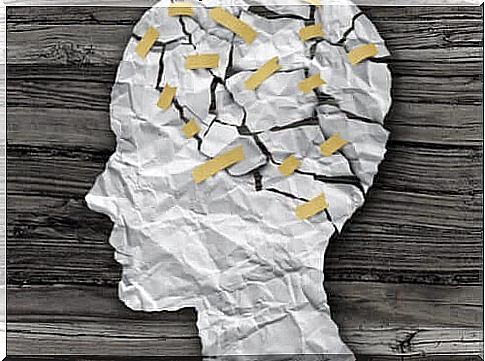Cognitive Impairment In Schizophrenia: Causes And Effects

Cognitive impairment in schizophrenia can be severe and is often associated with functional problems. Unfortunately, it is not always easy to identify the cause of the failure without specifying a neuropsychological profile.
It is important to note that these failures do not tend to be a product of the positive symptoms of schizophrenia (hallucinations, thought disorders, delusions, etc.). So far, there is no evidence of a direct relationship between the severity of hallucinations or delusions and the severity of cognitive impairment.
Individuals often experience cognitive changes in attention, orientation, and memory before psychotic symptoms. On the other hand, some cognitive changes, such as those related to attention and working memory, are present and remain stable during psychotic episodes.
In some cases where the patient is discharged after a long hospital visit, research shows that negative symptoms can be improved, while cognitive disorders remain the same or worsen. What this shows is that these two factors are relatively independent of each other.
Cognitive changes and negative symptoms are closely related due to how they interact. Nevertheless, this association is not easy to analyze.
In general, losing interest in things and feeling outside of a project affects a person’s cognitive abilities. Thus, the combination of these variables can have a greater influence on the forecast.

The effects of cognitive impairment in schizophrenia
As we mentioned above, the cognitive changes in schizophrenia can be severe. They limit personal autonomy and the patient’s ability to perform everyday tasks.
- Cognitive impairment can affect the patient’s ability to function socially due to the failure of explicit memory and the ability to maintain concentration.
- Failure of executive function, explicit memory, working memory and persistent attention can affect the patient’s work function. It hinders their ability to concentrate, obtain information and learn new things.
- Failure in executive function, explicit memory and working memory can also affect the individual’s ability to live independently. It affects their ability to do everyday tasks such as cooking, shopping and personal hygiene.
Causes of cognitive impairment in schizophrenia
Researchers do not yet know what causes cognitive impairment in schizophrenia. Some experts suggest that it is possible that these cognitive disorders are a consequence of treatment with antipsychotic medications. However, there is no data to support this hypothesis.
Research shows that conventional antipsychotic medications have a positive, albeit moderate, effect on some basic psychological processes such as attention. The disadvantage of this is that they also affect motor skills.
Thus, we do not yet know whether antipsychotic medication is the cause or a solution to cognitive impairment in people with schizophrenia. Further research can shed light on this topic.
In 2018, researchers at the University of the Basque Country UPV / EHU published a study that evaluated the effectiveness of several medications in their slowing of cognitive impairment in patients with Alzheimer’s. To do this, they evaluated all significant improvements in cognitive impairment in patients with schizophrenia.
Through analyzes of new clinical trials at the global level, researchers have made a number of methodological improvements in medical research that guarantee functional improvement in these patients.

Non-pharmacological treatment
One of the biggest problems with antipsychotic medications is that they are only useful in treating positive symptoms. They are not very effective for the negative symptoms of schizophrenia, which is why other non-drug treatment is also important.
For example , occupational therapy can help treat attention problems. It can help the patient improve their directed attention and concentration with exercises that focus on stimulation, concentration and craftsmanship.
All treatments should be tailored to the needs of each individual patient. Although some anatomical and neurochemical changes are common in patients with schizophrenia, the heterogeneity of the disorder makes it impossible to establish general neuropsychological profiles.








